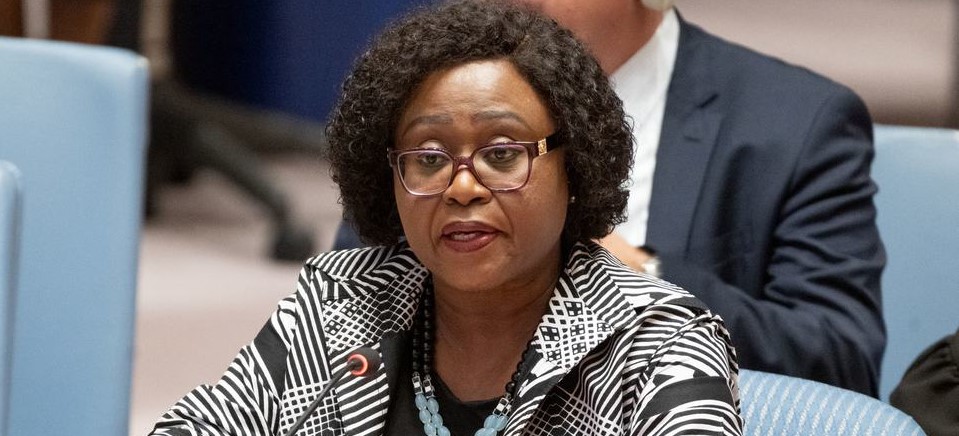South Sudan is at a “turning point” as worsening violence, political gridlock and a deepening humanitarian crisis threaten to derail its fragile peace process, U.N. and regional officials told the Security Council on Monday.
Martha Ama Akyaa Pobee, the U.N. assistant secretary-general for Africa, warned that clashes between government forces and opposition groups since March have caused civilian deaths, mass displacement and destruction of infrastructure. Despite calls for de-escalation from the U.N., African Union and regional bloc IGAD, “these calls have not yielded any concrete response,” she said.
Pobee cited stalled reforms, delayed plans for elections and the detention of opposition figures without due process as major concerns. “Declarations of commitment are not enough,” she said, urging leaders to take concrete steps toward elections scheduled for December 2026.
The humanitarian situation remains dire, with 7.7 million people facing severe food insecurity and 83,000 at risk of famine. Aid operations are further hampered by underfunding—only 28.5% of the 2025 response plan is financed—and attacks on humanitarian workers.
George Aggrey Owinow, interim chair of the Reconstituted Joint Monitoring and Evaluation Commission, said the ceasefire has been repeatedly violated, including by government airstrikes on opposition-held areas. The detention of First Vice President Riek Machar and other opposition leaders has deepened mistrust, he added.
“The current trajectory risks reversing all that has been gained,” Owinow warned. “It will be tragic if its gains to date are lost beyond restoration.”
Murithi Mutiga of the International Crisis Group noted that 9.3 million people need assistance, while the conflict in neighboring Sudan has pushed over 1.2 million refugees into South Sudan. He called for urgent diplomacy to prevent further escalation.
Council Members Demand Action
Several Security Council members condemned the violence and urged the release of detained politicians. Slovenia denounced attacks on aid workers as “unacceptable and unlawful,” while the U.S. accused South Sudanese leaders of lacking political will, leaving citizens “trapped in a cycle of conflict.”
The U.K. and others echoed African Union calls for Machar’s release, warning that his prolonged detention jeopardizes elections. Pakistan stressed that credible polls require “an environment of trust and inclusivity.”
Divisions emerged over sanctions, with China urging the Council to lift its arms embargo, while France insisted on full compliance. Russia dismissed some warnings as “excessively alarmist,” saying South Sudan’s government can still avert civil war.
Pobee stressed that the 2018 peace deal remains “the only viable framework” to avoid a return to widespread violence. “South Sudan is at a turning point,” she said. “The risk of a relapse will only grow without action.”




